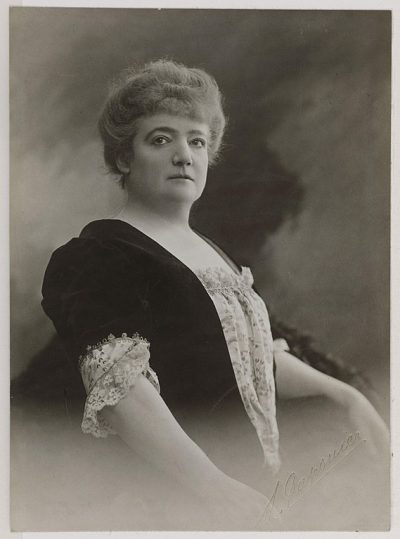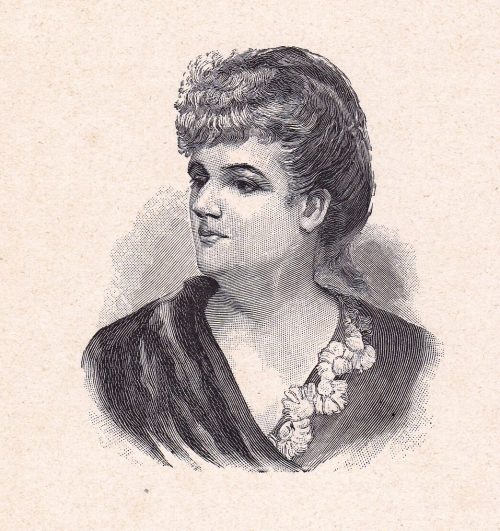After Augusta Holmès (1847-1903) composed her Ode triomphale, a massive composition commissioned by the committee for the Exposition universelle for 1889, the centenary of the French revolution, Saint-Saëns said of her that the French Republic had found a muse. More conventionally in the muse department, Holmès also inspired both a hopeless passion in her teacher César Franck – and his indecorously passionate Piano Quintet.
And yet it would be reductive to speak of her simply as a muse. Unlike Clara Schumann and Alma Mahler, who both inspired their famous husbands and put their men’s careers ahead of their own compositional endeavours, she declined to do any such thing. She was ambitious, determined to make something of herself as a composer, and – at least partly thanks to an inheritance that left her independently well-off – was able to eschew the typical trajectory of a woman of her time. She never got married, despite all the men of the Paris Conservatoire reportedly being in love with her at one point (per Saint-Saëns); instead she chose to have a long relationship with the writer Catulle Mendès, and though she had five children* with him, did not show much interest in the business of motherhood (she never acknowledged them officially, and Mendès, for his part, had his father acknowledge them as his own, making them his legal half-siblings, thus creating, as a friend of his observed, a fine legal imbroglio).
*three of whom famously appear in Renoir’s painting Les trois filles de Catulle Mendès.
In her oeuvre, too, we see the same lack of interest in subscribing to stereotypes of femininity. She did not restrict herself to smaller-scale forms and salon music, which was more typical of the work of female composers – not only did she write songs (often to her own texts), she also worked on a large scale: operas, symphonic cantatas, symphonic poems, often with an epic, nationalistic patriotic aspect (the aforementioned Ode triomphale, which was a huge success at the time, would require 1,200 musicians). Male critics and composers – perhaps a bit bewildered by the combination of her physical beauty and her unconventionality – would comment on the “virility” of her work, sometimes in a complimentary way, sometimes in a less complimentary way; less friendly critics would imply that she was not very successfully trying to be a man.
Be that as it may, she went her way, and does not seem to have bothered too much with the naysayers. She managed to get her opera La montagne noire staged at the Paris Opéra – a coup in itself as she thus became the first woman to have an opera premièred there – and even though its indifferent reception was to prove a considerable blow to her, she continued to compose and had sketched out a second libretto before her death in 1903 – indomitable to the last.
-Suzanne Yeo
October 2020
Return to podcast. ↵
Can’t get enough?
Visit our Bibliography page for further sources.
Subscribe to our Newsletter!

